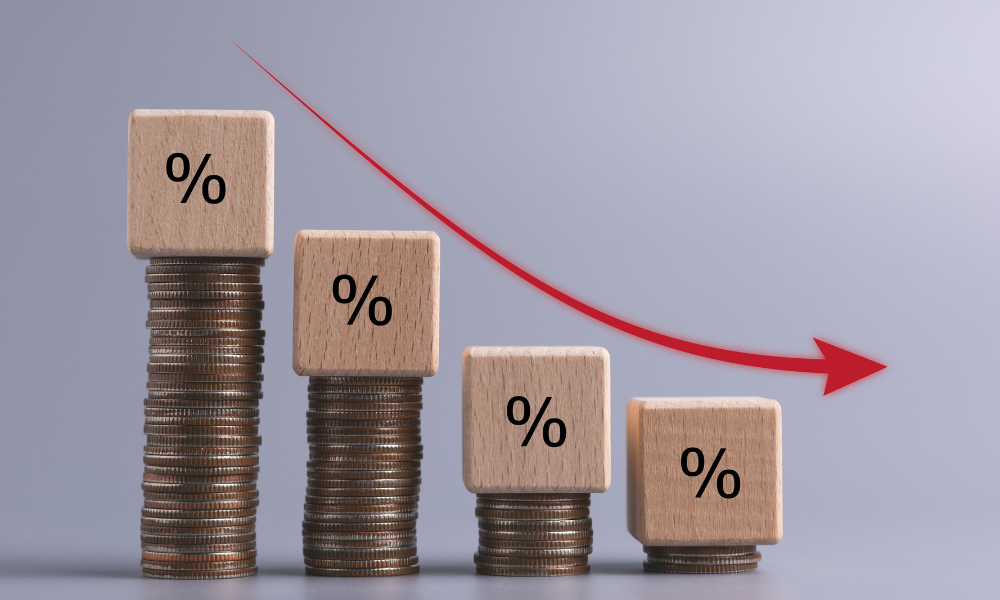

After the correction seen just a week ago, any rise for the S&P 500, Nasdaq, and Dow Jones feels positive, but even as the worst of the market weakness may be over for now (according to some Wall Street strategists) sentiment elsewhere is concerning.
Firstly, US consumer sentiment, with the Conference Board’s Consumer Confidence Index down more than 7 points to 92.9 with its Expectations Index falling to a 12-year low of 65.2, which is also far below the threshold (80) that suggests recession may be ahead.
The organization’s senior economist for global indicators, Stephanie Guichard, said of the five parts of the index, only consumers' assessment of present labor market conditions improved and then only slightly.
“Views of current business conditions weakened to close to neutral. Consumers' expectations were especially gloomy, with pessimism about future business conditions deepening and confidence about future employment prospects falling to a 12-year low,” she said. “Meanwhile, consumers' optimism about future income—which had held up quite strongly in the past few months—largely vanished, suggesting worries about the economy and labor market have started to spread into consumers' assessments of their personal situations."
The over 50s were most pessimistic while the youngest cohort of adults was most optimistic while across all age groups, only those with household incomes of $125K or more were positive.
While Consumers' assessments of their family's current financial situation improved slightly in March, their assessments of their family's expected financial situation weakened to a 2½-year low.
"Likely in response to recent market volatility, consumers turned negative about the stock market for the first time since the end of 2023,” added Guichard. “In March, only 37.4% expected stock prices to rise over the year ahead—down nearly 10 percentage points from February and 20 percentage points from the high reached in November 2024. On the flip side, 44.5% expected stock prices to decline.
With the cost of eggs and the impact of tariffs front of mind, expectation of rising inflation was higher in the March survey.
The top strategist at UBS, Bhanu Baweja, warned Tuesday that “visibly tiring” US consumers along with the spending outlook and labor market expectations could all weigh on the S&P 500 with a potential drop to 5300 in the coming months as analysts slash earnings estimates.
With consumer sentiment weakened, it’s little surprise that businesses are also feeling downbeat.
The latest CNBC CFO Council Survey revealed that most are pessimistic about the state of the US economy and are uncertain about the stock market. Almost all said that the uncertainty around President Trump’s tariffs policy makes it hard to make business decisions.
Three quarters of CFOs who took part in the survey said they expect a US recession either this year (60%) or in 2026 (15%).

By listening for what truly matters and where clients want to make a difference, advisors can avoid politics and help build more personal strategies.

JPMorgan and RBC have also welcomed ex-UBS advisors in Texas, while Steward Partners and SpirePoint make new additions in the Sun Belt.

Counsel representing Lisa Cook argued the president's pattern of publicly blasting the Fed calls the foundation for her firing into question.

The two firms violated the Advisers Act and Reg BI by making misleading statements and failing to disclose conflicts to retail and retirement plan investors, according to the regulator.

Elsewhere, two breakaway teams from Morgan Stanley and Merrill unite to form a $2 billion RIA, while a Texas-based independent merges with a Bay Area advisory practice.
Orion's Tom Wilson on delivering coordinated, high-touch service in a world where returns alone no longer set you apart.
Barely a decade old, registered index-linked annuities have quickly surged in popularity, thanks to their unique blend of protection and growth potential—an appealing option for investors looking to chart a steadier course through today's choppy market waters, says Myles Lambert, Brighthouse Financial.
